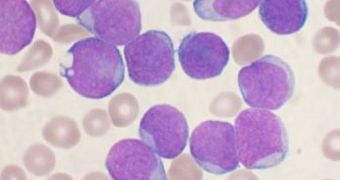Using unsuspecting lab mice as models for the human body, investigators in the United States were recently able to demonstrate that blocking a molecule called the PRC2 protein inhibits the uncontrolled proliferation of white blood cell cancer within the bone marrow.
The condition, called acute myeloid leukemia (AML), is extremely severe, and oftentimes fatal. Developing a cure that is not necessarily dependent on chemotherapy and radiotherapy would significantly improve the quality of life of tens of thousands of patients around the world.
The research team that conducted the investigation is based at the Cold Spring Harbor Laboratory (CSHL), and is led by assistant professor Chris Vakoc, MD, PhD. He explains that PRC2 stands for the Polycomb Repression Complex 2 protein.
The molecule is a chromatin regulator, a member of a class of proteins responsible for modifying the way in which genes are expressed. In the particular case of PRC2, the protein is responsible for chemically modifying histones.
The latter are a special class of proteins that bind to DNA, and determine how the nucleic acid works within the cell. What the CSHL team found was that blocking PRC2 enabled the activation of a very powerful anti-tumor pathway, which protects the body from AML effectively.
“Our results emphasize the idea that targeting chromatin regulators is an effective means of reawakening growth-halting mechanisms that lie dormant in most cancer cells,” Vakoc explains.
Details of the new investigation were published in the April 2 online issue of the journal Oncogene.
“We found that targeting the PRC2 complex allows reactivation of Ink4/Arf, genes that control a powerful potent tumor suppressor pathway that becomes silenced in AML,” CSHL graduate student Junwei Shi adds.
“This provides a clear rationale for a chromatin regulator as a drug target in this disease,” the student adds.
Funding for the new investigation came from the Don Monti Memorial Foundation, the Laurie Strauss Leukemia Foundation, the Sass Foundation, the Edward P. Evans Foundation and the FM Kirby Foundation.

 14 DAY TRIAL //
14 DAY TRIAL //